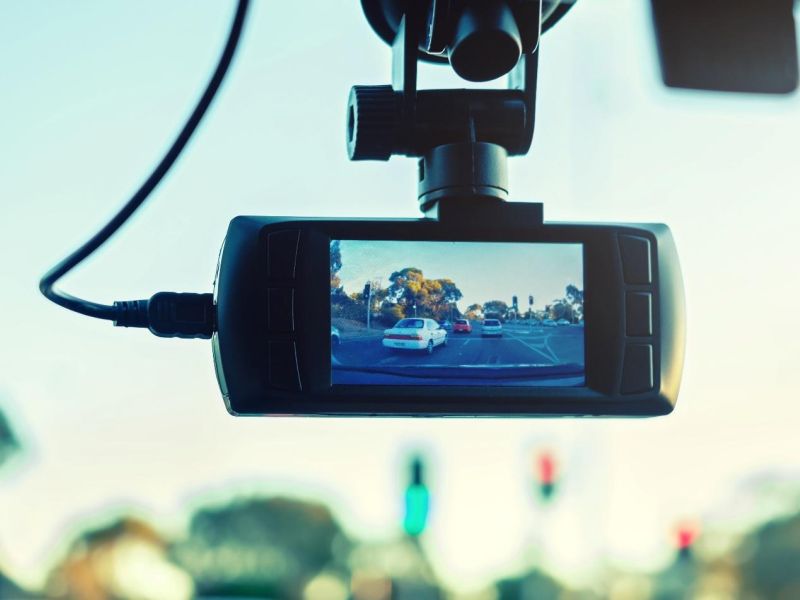
— Traffic Resources
Are Dashcams Legal?
You have probably seen dashcams for sale. You might have even wondered, “Are dashcams legal?” and may even have purchased one. These small devices could have a big impact on your traffic case, good or bad. If you would like more information about the legality of dashcams and how they might impact your traffic case, consider consulting with a knowledgeable traffic defense lawyer with Driving Defense Law by calling (757) 929-0335.
What Are Dash Cams?
Dashcams are small cameras that record the road ahead and/or behind the vehicle while an individual is driving. These cameras are specifically designed to record traffic situations. Therefore, they are typically designed so as to record high-quality footage while the vehicle is turned on in various environments, including daytime or nighttime, and in various temperatures, including extreme heat and cold.
How Do Dash Cams Work?
Dashboard cameras use the vehicle’s battery as a power source. Depending on the model of camera, the dash cam may automatically record any time after the vehicle is turned on, when the vehicle is in motion, or when a crash is detected. Dash cam owners may be able to upload saved recordings to the cloud for safe storage. They may also be able to share this video with insurance companies, law enforcement agencies, a lawyer, or others.
Some dash cameras offer additional features. Some devices send an emergency text message to a predetermined contact in case of an accident. Others continue to record when the vehicle is turned off, serving as an additional security measure against auto theft. Some dashcams also provide real-time driver alerts about red light cameras, nearby police, speed traps, and speed cameras.
Uses for Dash Cams
Dashcams can be useful in many situations. Some ways that vehicle owners may be able to use dash cam footage in case of an accident or traffic violation include:
- Showing they did not commit a traffic offense they are being accused of
- Contradicting another driver’s account in the event of an accident
- Filling in gaps about what happened during a traffic stop that were not recorded or released from body cam or police dashcam footage
- Demonstrating police misconduct, such as seizing evidence without legal justification
Can I Have a Dash Cam While Driving in Virginia?
There are currently no federal regulations that prohibit having dashboard cameras. Additionally, dash cameras are legal in Virginia.
Virginia law allows recording in areas available to the public and where people do not have a reasonable expectation of privacy. Furthermore, according to the Digital Media Law Project, Virginia is a single-party consent state, meaning that any party who is a participant in a conversation can legally record the conversation. Therefore, if the dash cam records a conversation one driver had with another driver after an accident or a law enforcement officer during a traffic stop, this recording would likely be legal.
Where Can I Put My Dash Cam?
The Code of Virginia § 46.2-1054 prohibits mounting any devices on the windshield or rear window that could obstruct the driver’s view. Instead, dash cameras should be mounted on the dashboard in a location that does not obstruct the driver’s view.
Do I Have To Tell Cops I Have a Dash Cam?
Today, most people carry cell phones with them wherever they go. They may take pictures and record videos in public places. As such, law enforcement officers cannot reasonably expect privacy during an interaction with the public. Drivers do not have to inform law enforcement they have a dash camera. However, police may be able to see the camera if they stop the vehicle for a traffic infraction.
Can Dash Cams Be Used Against You?
In addition to wondering are dashcams legal, one may also wonder if dashcam footage can be used against its owner. Dashcams can be used against their owners. However, there are some conditions to this usage. If you are concerned about the footage from your dash cam being used against you, an attorney from Driving Defense Law may be able to assist you.
How Dash Cam Footage Can Be Used Against You
Dash camera footage could potentially be used against the owner in a traffic case if it shows the owner violating the law or engaging in an activity that contributed to the accident, such as:
- Speeding
- Drinking and driving
- Texting while driving
- Changing lanes without signaling
- Brake checking
- Driving recklessly
Additionally, your dash camera, law enforcement dashcams, or the dash cam of another driver or witness may record evidence after an accident that could later be used against you. For example, the dash camera could have recorded you doing any of the following:
- Admitting fault for the accident
- Saying something that was contradictory to the evidence later discovered in your case
- Acting aggressively toward another driver after the accident
- Walking in an unbalanced manner that may indicate drug or alcohol impairment
You Do Not Have To Provide Your Footage to Law Enforcement
If an individual thinks the police want their dash camera footage to use it as evidence against them in a traffic case, according to the United States Congress, the individual may decide not to provide it to police under the United States Constitution’s Fifth Amendment that prevents citizens from being compelled to being a witness against themselves in any criminal case. Similarly, the text of the Fourth Amendment, as provided by Congress, also prevents law enforcement from seizing any property through any unreasonable searches and seizures. To obtain a driver’s dash camera footage, law enforcement personnel may need to file for a warrant supported by probable cause. In some cases the doctrine of exigent circumstances may allow them to confiscate the camera instead.
If law enforcement does take a driver’s dash camera, they do not have the right to delete the footage. However, a lawyer may recommend that drivers immediately create a backup copy of any recording they have in the cloud if law enforcement has taken their camera.
You Can Request Law Enforcement Dash Camera Footage
Dash camera footage that was recorded by law enforcement may be available in your case. A driver, or their attorney if they are working with professional legal representation, may be able to request a copy or make a public records request for such evidence to use in the driver’s defense. If the driver obtains this evidence, and they wish to use it as part of their defense, they will need to be able to substantiate it in court and prove the video was made on the date and time they claim.
Do You Have Questions for an Experienced Traffic Defense Lawyer?
Are dashcams legal? Yes, they are, and there can be many benefits to having one in your vehicle. If you have been told your dash cam is illegal, are worried about dash cam footage being used against you, or have other questions about dashcams, the experienced Norfolk traffic defense attorneys with Driving Defense Law may be able to answer your questions and help you understand your legal options. Call (757) 929-0335 to schedule a confidential consultation.

